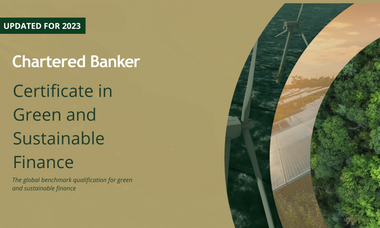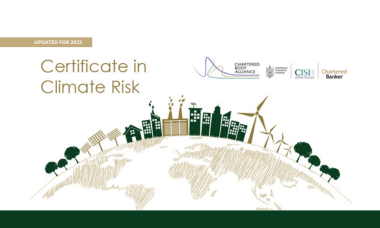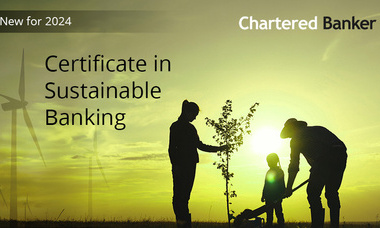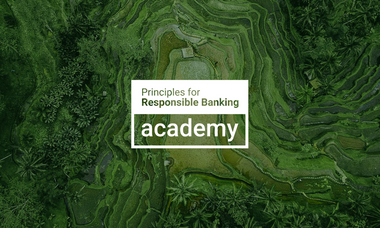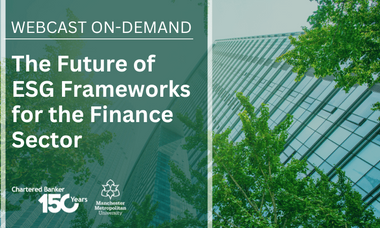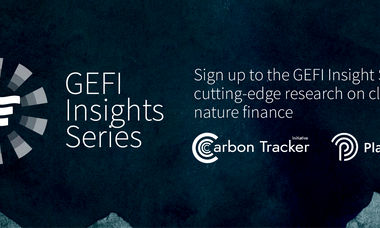- What is Green Finance?
- What is Sustainable Finance?
- Why study the Certificate in Green and Sustainable Finance?
- Green and Sustainable Finance Resources.
- Green and Sustainable Finance: Principles and Practise
- Our Green Finance Partners.
- Key Terms
What is Green Finance?

This is a broad definition which acknowledges the different dimensions of the concept of green finance, while retaining an overarching focus on enhancing and sustaining the natural environment, and managing current and future environmental risks - particularly, but not, exclusively, climate change. It highlights and recognises the two-way nature of the relationship. Finance and investment can help or harm the environment, while the environment can also positively or negatively impact the performance of investments and finance services firms.
What is Sustainable Finance?

Why study the Certificate in Green and Sustainable Finance?
We are very proud to have launched the world’s first benchmark qualification for Green and Sustainable Finance. This global Certificate provides learners with a comprehensive overview and understanding of the evolving Green and Sustainable Finance sector, covering:
- Introduces green and sustainable finance in the context of retail, commercial and wholesale banking, central and development banks, insurance and investment sectors;
- Covers the science of climate change and the role of the financial system in the natural world;
- Global, international and national policy, regulatory and industry responses to support flows of finance for sustainable growth;
- Identifying, disclosing and reporting climate-related financial risks, and other environmental and sustainability risks;
- Introduces key sustainable finance frameworks/principles including the UN Sustainable Development Goals, TCFD, Green Bond Principles and Green Loan Principles;
- Supporting customers in their transition to sustainability;
- Overview of green and sustainable FinTech;
- Ethical dimensions of Green Finance and the Role of the Green Finance Professional.
Green and Sustainable Finance Resources
Green and Sustainable Finance: Principles and Practice
As the finance sector aims to meet the challenges of climate change and the transition to a low-carbon world, green finance has grown increasingly mainstream. Green and Sustainable Finance is a comprehensive guide to the application of common green and sustainable practices in banking, investment and insurance, order here.
Our Green Finance Partners
- CISI - the largest and most widely respected professional body for the securities and investment profession in the UK and in a growing number of financial centres globally.
- UK Finance - the collective voice for the banking and finance industry. Representing more than 250 firms across the industry, they act to enhance competitiveness, support customers and facilitate innovation.
- FINSIA - the professional body in Australia and New Zealand for the financial services industry. FINSIA, the Financial Services Institute of Australasia, origins go back to 1886, when the AIBF was established by a group of bankers to drive improvements in professional practice and high standards of conduct.
- Hong Kong Institute of Bankers - Established in 1963, The Hong Kong Institute of Bankers (HKIB) is the first non-profit institution that provides training and certification services to the banking community in Hong Kong. Playing an important role in talent development in the local banking industry.
- The Institute of Banking and Finance Singapore - established in 1974 as a not-for-profit industry association to foster and develop the professional competencies of the financial industry.
- GEFI - The GEFI Insights Series aims to educate and inspire financial institutions and practitioners to align their strategies with climate and nature goals within the context of COPs 16 (biodiversity) and 29 (climate).
Key Terms

